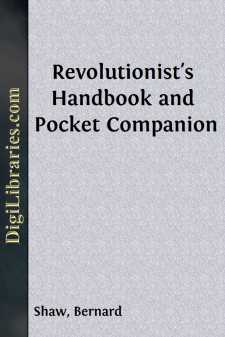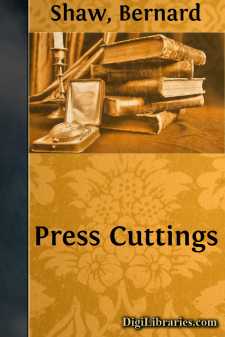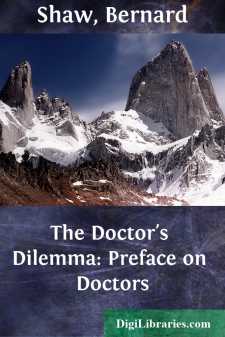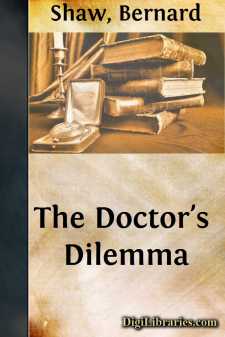Categories
- Antiques & Collectibles 13
- Architecture 36
- Art 48
- Bibles 22
- Biography & Autobiography 813
- Body, Mind & Spirit 142
- Business & Economics 28
- Children's Books 17
- Children's Fiction 14
- Computers 4
- Cooking 94
- Crafts & Hobbies 4
- Drama 346
- Education 46
- Family & Relationships 57
- Fiction 11829
- Games 19
- Gardening 17
- Health & Fitness 34
- History 1377
- House & Home 1
- Humor 147
- Juvenile Fiction 1873
- Juvenile Nonfiction 202
- Language Arts & Disciplines 88
- Law 16
- Literary Collections 686
- Literary Criticism 179
- Mathematics 13
- Medical 41
- Music 40
- Nature 179
- Non-Classifiable 1768
- Performing Arts 7
- Periodicals 1453
- Philosophy 64
- Photography 2
- Poetry 896
- Political Science 203
- Psychology 42
- Reference 154
- Religion 513
- Science 126
- Self-Help 84
- Social Science 81
- Sports & Recreation 34
- Study Aids 3
- Technology & Engineering 59
- Transportation 23
- Travel 463
- True Crime 29
Sort by:
by:
Bernard Shaw
You once asked me why I did not write a Don Juan play. The levity with which you assumed this frightful responsibility has probably by this time enabled you to forget it; but the day of reckoning has arrived: here is your play! I say your play, because qui facit per alium facit per se. Its profits, like its labor, belong to me: its morals, its manners, its philosophy, its influence on the young, are...
more...
by:
Bernard Shaw
FOREWORD A revolutionist is one who desires to discard the existing social order and try another. The constitution of England is revolutionary. To a Russian or Anglo-Indian bureaucrat, a general election is as much a revolution as a referendum or plebiscite in which the people fight instead of voting. The French Revolution overthrew one set of rulers and substituted another with different interests and...
more...
by:
Bernard Shaw
The forenoon of the first of April, 1911. General Mitchener is at his writing table in the War Office, opening letters. On his left is the fireplace, with a fire burning. On his right, against the opposite wall is a standing desk with an office stool. The door is in the wall behind him, half way between the table and the desk. The table is not quite in the middle of the room: it is nearer to the...
more...
by:
Bernard Shaw
AUGUSTUS DOES HIS BIT The Mayor's parlor in the Town Hall of Little Pifflington. Lord Augustus Highcastle, a distinguished member of the governing class, in the uniform of a colonel, and very well preserved at forty-five, is comfortably seated at a writing-table with his heels on it, reading The Morning Post. The door faces him, a little to his left, at the other side of the room. The window is...
more...
by:
Bernard Shaw
WHY NOT GIVE CHRISTIANITY A TRIAL? The question seems a hopeless one after 2000 years of resolute adherence to the old cry of "Not this man, but Barabbas." Yet it is beginning to look as if Barabbas was a failure, in spite of his strong right hand, his victories, his empires, his millions of money, and his moralities and churches and political constitutions. "This man" has not been a...
more...
by:
Bernard Shaw
It is not the fault of our doctors that the medical service of the community, as at present provided for, is a murderous absurdity. That any sane nation, having observed that you could provide for the supply of bread by giving bakers a pecuniary interest in baking for you, should go on to give a surgeon a pecuniary interest in cutting off your leg, is enough to make one despair of political humanity....
more...
by:
Bernard Shaw
The Child is Father to the Man Is he? Then in the name of common sense why do we always treat children on the assumption that the man is father to the child? Oh, these fathers! And we are not content with fathers: we must have godfathers, forgetting that the child is godfather to the man. Has it ever struck you as curious that in a country where the first article of belief is that every child is born...
more...
by:
Bernard Shaw
ACT I On the 15th June 1903, in the early forenoon, a medical student, surname Redpenny, Christian name unknown and of no importance, sits at work in a doctor's consulting-room. He devils for the doctor by answering his letters, acting as his domestic laboratory assistant, and making himself indispensable generally, in return for unspecified advantages involved by intimate intercourse with a...
more...
by:
Bernard Shaw
ACT I At the most wretched hour between a black night and a wintry morning in the year 1777, Mrs. Dudgeon, of New Hampshire, is sitting up in the kitchen and general dwelling room of her farm house on the outskirts of the town of Websterbridge. She is not a prepossessing woman. No woman looks her best after sitting up all night; and Mrs. Dudgeon's face, even at its best, is grimly trenched by the...
more...
by:
Bernard Shaw
The twelfth of May, 1796, in north Italy, at Tavazzano, on the road from Lodi to Milan. The afternoon sun is blazing serenely over the plains of Lombardy, treating the Alps with respect and the anthills with indulgence, not incommoded by the basking of the swine and oxen in the villages nor hurt by its cool reception in the churches, but fiercely disdainful of two hordes of mischievous insects which...
more...











